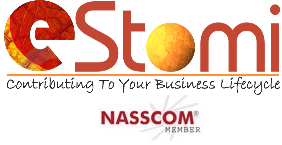Although familiar to most of the people worldwide, I think, people hardly give a thought to understand what this equation (E = mc2) is all about. Yes, everybody knows that it is associated with Einstein and vice-versa and few of us know that it explains theory of relativity. David Bodanis has written an excellent book to explain it in the simplest way. Don’t worry, I do not intend to explain the theory of relativity in this blog; however, I would like to leverage this equation to share my thoughts on ethics.
I have shared few of my thoughts on ethics in one of my previous blogs (http://blogs.siliconindia.com/ChetanNagaonkar/Get_Ethical_Get_Wealthy-bid-7mO5Kdov91117906.html). There, I have explained how, many people, under the guise of situational ethics, do unprincipled, unscrupulous or unconscionable things.
I would like to consider and re-define the parameters of the equation, for ethics, yet keep it simple –
Ethics = moral conduct of code
As you would note, it is about doing the things morally. And by that, I mean, as explained in the earlier blog, doing the things even if you would do it when your family/friends or loved ones are around, or without having a slightest tinge of guilt.
To me, ethics is synonymous with trust and principles. Like Stephen Covey explains in ‘7 habits of highly effective people’, values drive behavior while principles drive the consequences of behavior. I think that only the people who are trustworthy and principled, can be ethical.
Let me narrate couple of incidents that I have experienced. This happened in the very beginning when we had just started the start-up. One of my ex-colleague had approached me to enquire if we had openings. I was in talk with one of the prospects to sign up consulting assignment. Since I knew his capabilities, I wanted to get him on board and requested him to wait until I sign the agreement with the prospect. I contacted him after signing the agreement which took about 2-3 weeks. To my surprise, I learned that he had joined the same organization with which we had signed consulting agreement! When I enquired why he couldn’t wait, he said that he was losing patience at current organization. The agreement that we had signed with customer stated that we couldn’t hire each other’s employees. It so happened that the same person approached me again after couple of months since he was put on support project and in night shifts despite promising that they would put him on development project and in general shift. Since I had a faith on his capabilities and I wanted to hire him, we had to terminate the agreement with the new customer so that ethically, there was no binding. The customer was large one and they wouldn’t have found out either; however, that’s where true ethics come into picture. It’s about doing the right thing and today we feel so proud to have done that.
About couple of years ago, I was discussing about our family-run business with my father. My family is into tobacco business that is being run in partnership for over 130 years now. Interestingly, I had never asked about business earlier as I was never interested until I founded eStomi. I was pleasantly surprised and proud to know when I learned about the ethics that they have been following it right from day 1. In fact, I realized that the foundation of the business is based on ethics. Essentially, when they sell tobacco, they call both parties – the customers and the vendor from who they buy it, do the deal in front of all parties, agree on the margins upfront and then close the deal. When I enquired why wouldn’t they get the tobacco and sell it considering higher margin, I learned that the agreement with customers was done that way! Also, although it has been ages, the agreement still holds good and nobody has changed it to gain higher margins. No customer has discontinued purchasing it from us as the deals continue to be transparent. Interestingly, sometimes, when the customers who are from Madhya Pradesh or Gujarat and cannot travel, business continues to be done over phone with the same faith and trust! Guess what? Even though the customers and vendors come to know about each other, they do not approach each other directly either! Trust is showcased by all the parties and it definitely reflects why the business has been mutually profitable and around for such a long time. I know it sounds unbelievable in today’s age; however, this is how that business is being done. I understand you may be saying that this may work only if all the parties trust each other. However, isn’t it true that usually the trust is broken when one of the parties start thinking those others wouldn’t know if they breach the trust?
May be, its time to change the equation from E=mc2 to E=mcn, where code of conduct gets multiplied “n” (several) times or rather, every time?![]()
